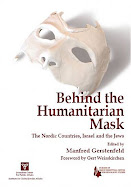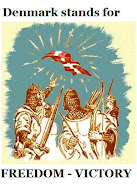The second analysis of exceptional insight and quality which is equally clear, lucid and concise - Bill Warner's An Ethical Basis for War Against Political Islam.
An Ethical Basis for War Against Political Islam: Part 1
The Origin of the Politics of Islam
Mohammed preached for 13 years in Mecca and only acquired about 150 followers. Following the death of his protector and uncle, the wealthy class of Mecca ran him out of town. He left with his followers and went to Medina, a town located less than a hundred miles from Mecca in what is now Saudi Arabia. There he preached for another year and obtained a hundred or so more followers.
In order to support himself and his followers, he sent men out to rob caravans from Mecca and generously distributed among them the wealth they brought back, keeping a portion for himself. Part of the wealth obtained from these raids were captives which Mohammed also distributed among his men as slaves and in some cases as wives. Slaves who agreed to convert to Islam were freed. Mohammed was never motivated by money as much as by power. He considered money a tool that could be used to fund jihad and to support his followers.
At the same time, Mohammed moved from the strictly religious or spiritual practice of Islam into a profoundly political mode. Suddenly the new Islam became popular. It was not simply a religion that would assure the poorest of the poor a place of honor in a gilded paradise, but a political system that could provide them with wealth, sex and power, all to be had for the taking from the kafir.
The word of Allah, as received and reported by Mohammed, is divided into two records. The Koran of Mecca was based on religious precepts. The Koran of Medina, however, became clearly political in scope and direction.
The belief that only Muslims are protected by Allah meant that kafirs were not afforded the usual considerations of morality, such as equality, honesty and compassion. Examples we see from Mohammed's life show that kafirs can be mocked, raped, cursed, threatened, tortured, killed, robbed or enslaved to advance the cause of Islam.
This dual system of ethics paved the way to jihad: a holy war undertaken as a Muslim duty and are reflected in the Islamic world view:
dar al Islam, land of submission
dar al harb, land of war
In contrast, the prevailing kafir world view is that all people at some fundamental level are equal, although they are not necessarily the same. Not all people are of the same ability, although all deserve to be treated fairly, compassionately and honestly. The ultimate ethical statement is referred to as The Golden Rule: "Treat others as you wish to be treated." In this view "others" and "self" are equal and all of humanity is to be accorded the same consideration. This is the ideal. We frequently fail to live up to the ideal, but is the ideal nevertheless.
The dual ethics of Islam are not as simple as separate set of ethics for the kafir. What makes political Islam so effective is that it has two stages of ethics for the kafir. It has the ethics of the Meccan Koran (written early and religious), and the ethics of the Medinan Koran (written later and political). Islam can treat the kafir well, but as an inferior (Koran of Mecca), or treat him as an enemy of Allah (Koran of Medina). Both actions are sanctioned as sacred in the Koran. Islamic apologists always refer to the Meccan ethics.
The Two Civilizations
Ethics are of primary importance. Ethics determine how you treat someone else. The ethic of unity is the basis of democracy, the Declaration of Independence and the US Constitution.
It was the Golden Rule that lead to the end of slavery. All civil rights was based upon the Golden Rule. Notice this is about politics, not religion. The Golden Rule goes beyond religion.
There are only two types of ethics-unity and dualistic. And so there are two civilizations-those based upon ethics of unity and those based upon dualistic ethics.
This is the crux of the matter. Christian, Jew, Hindu, Buddhist, Jain and most atheists subscribe to the Golden Rule. A Hindu has the same ethics as a Christian. Both are workers, hold family in high regard and don't lie, cheat or steal. Of course, some do, but they can be judged, shamed and condemned on the basis of the Golden Rule ethical system.
A Muslim is not subject to the Golden Rule, and so does not feel shame at the suffering of the kafirs. Take slavery, for instance. Christians can be shamed over slavery. Islam has a 1400-year history of slavery, including running the slave trade that sold the Africans to the Christians. There are no Islamic books that recall the slave trade in any detail and express any regret.
There has never been a book written where a Muslim recalls the historic suffering of jihad and has remorse or shame. Every history of jihad is glorious. Mohammed killed and enslaved the kafirs and established the ideal pattern for all Muslims. Mohammed never felt remorse or shame, so a Muslim feels no remorse or shame over any suffering caused by jihad.
This lack of regret or sorrow is what should be expected of a dualistic ethical civilization.
The kafirs cannot unite on the basis of religion, but we are already united on the basis of an ethics of unity. We just need to understand our common ethical ground. If we understand that we are all members of a unitary ethical civilization, we can also unite to defend ourselves against the attack by the dualistic ethical system of Islam.
Bill Warner
Signup for our weekly newletter.
copyright 2008, CBSX, Inc. dba politicalislam.com
Use this as you will, just do not edit and give us credit.
































No comments:
Post a Comment